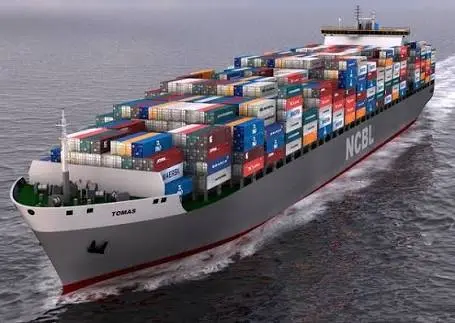Freight Forwarders in the Nigerian port industry, particularly at the Lagos ports have said that the transition glitches of the customs ICT trading platform from Nigeria Integrated Customs Information System (NICISS) to B’Odogwu cost them loses estimated at over N200 billion in demurrages at the ports.
Some of the freight forwarders who spoke to Sunday Telegraph at the weekend disclosed that the disruptions to cargo clearance at the seaports trapped over 5,000 containers, a development they said caused a surge in costs, and stuck raw materials which threatened manufacturing companies in the country.
They however praised the Comptroller General of Customs Bashir Adewale Adeniyi for personally intervening to bring the challenge under control. This came as CGC Adeniyi has declared that there would be no retreat from the new digital trade platform, B’Odogwu, despite freight forwarders’ complaints of delays triggered by the transition to the new ICT platform.
Adeniyi who disclosed this during engagements with stakeholders in Lagos, said the Unified Customs Management System (UCMS), codenamed B’Odogwu, represents a firm policy direction aimed at modernising cargo clearance and improving transparency.
“There is no going back on B’Odogwu. We have to forge ahead with what we have started. We know there will be issues, which is why, before now, we met with some authorised banks, and that engagement has yielded positive results,” Adeniyi said.
A leading freight forwarding practitioner who did not want his name on print, told Sunday Telegraph that the hiccups have persisted, saying they had not been able to clear their goods from the ports for up to a week due to technical glitches.
He disclosed that he had 100 containers that were affected by the hiccup caused by the B’Odogwu glitches despite making payment of duties, accumulating extra demurrage and rent fees.
He complained that the Service’s complete transition to the system, abandoning the manual process, leaves no room for options, a development he said, caused the freight forwarders losses during the transition glitches. He however, confirmed that the situation has improved now in Apapa, Tin Can and PTML commands.
According to him, while service disruptions lasted, a 40-foot container attracted a daily demurrage of between N120, 000 and N140, 000 for a 40-foot container, while the Terminal Operators charged about N80,000 daily for 20-foot container.
Also, demurrage for a car is N10, 000, while a truck attracts N35, 000. A caterpillar is charged N45, 000 as demurrage. These increase after the initial grace period.
The CGC blamed this in part to efforts by hackers to infiltrate the Customs’ digital system, but said that some problems had already been resolved through joint efforts.
“Such nefarious acts constitute economic sabotage, which we will not spare. On our part, we will continue to strengthen our system firewalls to prevent future downtimes,” he said.
The new system introduction comes amid Customs reintroduction of a four per cent charge on free on board (FoB), that have driven up import costs.
Some importers think that the joint concurrent introduction of these policies could lead to “reform fatigue.” However, some freight forwarders have urged patience on members.
President of Africa Association of Professional Freight Forwarders and Logistics (APFFLON), Frank Ogunojemite, said the system would improve revenue generation, data sovereignty and operational transparency.
He also called for urgent safeguards to protect traders from additional costs during the adjustment period. The association urged the Nigerian Shippers’ Council to intensify its role as port regulator by ensuring that demurrage and storage charges are not unfairly imposed on importers for delays beyond their control.
Meanwhile, Nigeria Customs Service (NCS) said it has resolved the delays experienced by importers in transmitting product certificates for Form M and the Standard Organisation of Nigeria’s Conformity Assessment Programme required for Pre-Arrival Assessment Report processing on the B’Odogwu platform.
A statement by the National Public Relations Officer of NCS, Abdullahi Maiwada, acknowledged that the disruption followed technical integration challenges that emerged during onboarding the Standard Organisation of Nigeria on the B’Odogwu platform.
He added that the system-related issues temporarily impacted traders’ ability to accurately capture their Form M, PAAR, and Single Goods Declaration.
“The attention of the NCS has been drawn to concerns raised by importers and licensed customs agents regarding recent delays experienced in the transmission of product certificates for Form M and SONCAP required for PAAR processing on the B’Odogwu platform.
“The service acknowledges that the disruption followed technical integration challenges that emerged during the process of onboarding the SON on the B’Odogwu platform on July 23, 2025. These system-related issues temporarily impacted traders’ ability to accurately capture their Form M, PAAR, and SGD,” Maiwada said.
He disclosed that while NCS was able to promptly resolve the issues within its system, further coordination was required to complete the resolution on SON’s side.
Maiwada affirmed that the NCS is willing to confirm that both agencies have successfully resolved the transmission issues.















